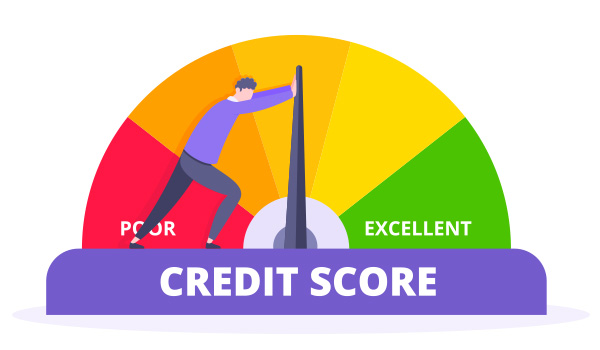As the calendar turns its page to a new year, it's an opportune moment to embark on a journey toward financial fitness and enhanced literacy. Whether you're aiming to build a robust savings plan, eliminate debt, or invest wisely, the path to financial wellness starts with informed decisions and intentional strategies.
Setting clear goals becomes the compass guiding you through the financial landscape, making your journey more purposeful and allowing for a point of reference to revisit. Let’s explore key resolutions and actionable steps that can shape a financially fit and prosperous year ahead.
From mastering budgeting basics to strategically investing and embracing the power of credit wisely, these resolutions will empower you to craft a sound financial strategy and work towards your aspirations.

Resolution 1: Mastering the Budgeting Basics
Think of budgeting as a comprehensive financial plan, helping you allocate your resources effectively, manage your expenses, and work towards your financial goals with purpose.
Budgeting is not merely about tracking income and expenses; it's a dynamic tool that empowers you to make intentional financial decisions. It offers a snapshot of your financial landscape, highlighting areas of strength and areas that may need attention.
By understanding where your money is going, you gain the ability to optimize your spending, increase savings, and strategically allocate funds to priority areas, whether it's debt reduction, building an emergency fund, or investing for the future.
Actionable Steps
- Create a Comprehensive Budget: Outline your income, fixed expenses (like rent and utilities), variable expenses (such as groceries and entertainment), and savings goals.
- Track Your Spending: Leverage budgeting apps or spreadsheets to monitor your spending habits. This awareness helps identify areas for potential savings.
- Emergency Fund: Aim to build an emergency fund that covers three to six months' worth of living expenses. This safety net provides financial resilience in unforeseen circumstances.
Example: If your monthly income is $4,000, allocate your rent or mortgage payments, $300 for groceries, $200 for utilities, and set aside $200 for savings. Tracking expenses will reveal areas where you can cut back, contributing to your emergency fund.

Resolution 2: Conquer Debt Strategically
Reducing and managing debt liberates your financial resources for more productive uses. Debt consolidation or reduction isn't just about lightening the financial load; it's a strategic move towards financial freedom. High-interest debts, in particular, can act as a drain on your resources, diverting funds that could be better utilized elsewhere.
By addressing and conquering debt strategically, you regain control over your financial destiny, positioning yourself for greater opportunities and long-term financial well-being. It's not just about the numbers; it's about reclaiming your financial autonomy and securing a more prosperous future.
Actionable Steps
- List Your Debts: Identify all outstanding debts, including credit cards, loans, and outstanding bills.
- Prioritize High-Interest Debts: Focus on paying off high-interest debts first to minimize interest payments.
- Consolidation Options: Explore debt consolidation as a strategy to streamline payments and potentially reduce interest rates.
Example: If you have multiple credit cards with varying interest rates, consider consolidating them into a single loan with a lower interest rate. This simplifies repayment and reduces overall interest costs.

Resolution 3: Invest in Financial Literacy Education
Building financial literacy is an investment in your own empowerment. It equips you with the knowledge and understanding needed to make informed decisions about your money, navigate complex investment options, and strategically plan for the future.
Financial literacy serves as a guiding light through the often intricate landscape of personal finance. It empowers you to decipher the language of investments, comprehend the implications of financial decisions, and, most importantly, take charge of your economic well-being. Armed with financial literacy, you can make sound choices about savings, investments, and retirement planning, aligning your actions with your long-term goals.
Actionable Steps
- Read Widely: Invest time in reading reputable financial literature, blogs, and books to expand your knowledge.
- Attend Workshops and Webinars: Many financial institutions, including ATFCU, offer workshops and webinars to enhance financial literacy.
- Consult a Financial Advisor: Seek guidance from financial professionals who can provide personalized advice based on your unique situation.
Example: Read financial literacy blog articles by ATFCU to gain insights into investment strategies, retirement planning, and building a diversified portfolio.

Resolution 4: Build Wealth Through Strategic Saving and Investing
Growing wealth is a journey that demands a blend of disciplined saving and strategic investments. Saving alone is like planting seeds, while investing is the sunlight and rain that help those seeds flourish into a thriving financial garden.
Disciplined saving forms the foundation of wealth-building. It instills financial discipline, encourages a habit of regular savings, and establishes a safety net for unforeseen circumstances. It provides the capital needed to seize opportunities and navigate financial challenges with confidence.
Actionable Steps
- Set Clear Goals: Define short-term and long-term financial goals. Whether it's buying a home, funding education, or retiring comfortably, having clear goals informs your saving and investment strategies.
- Maximize Retirement Contributions: Contribute the maximum amount allowed to your retirement accounts, taking advantage of employer matches if available.
- Diversify Investments: Spread your investments across a mix of asset classes to mitigate risk. Consider options like mutual funds, stocks, and bonds.
Example: If your goal is to retire comfortably in 25 years, calculate how much you need to save monthly to reach that goal. Consult with a financial advisor to determine an investment strategy aligned with your objectives.

Resolution 5: Embrace the Power of Credit Wisely
Maintaining a healthy credit history establishes a foundation of trust with lenders, enabling you to access credit at lower interest rates. Whether you're applying for a mortgage, car loan, or a credit card, a favorable credit history often translates into more favorable terms and conditions.
It allows you to leverage credit as a strategic financial tool, using it to your advantage rather than being burdened by high-interest rates.
Actionable Steps
- Check Your Credit Report: Obtain a free annual credit report to review your credit history for inaccuracies.
- Pay Bills On Time: Timely bill payments positively impact your credit score. Set up reminders or automatic payments to avoid late fees.
- Understand Credit Utilization: Strive to keep credit card balances below 30% of the available limit to maintain a healthy credit utilization ratio.
Example: Review your credit report for any errors and dispute inaccuracies. Consistent on-time payments and responsible credit use contribute to a positive credit history.

Your Journey to Financial Wellness Begins Now
As you embark on your journey toward financial fitness in the new year, remember that small, consistent steps lead to significant achievements. Whether you're refining your budget, tackling debt, or venturing into investments, each decision contributes to your financial well-being.
ATFCU is here to support your goals, offering resources, guidance, and a community dedicated to your financial success. Here's to a year of empowered financial decisions, increased literacy, and lasting prosperity. Cheers to your fiscal fitness journey in the new year!

